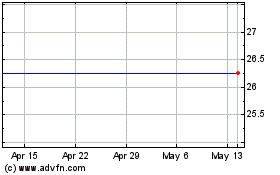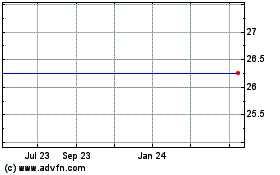Reward Outweighs Risk In Arbitrage Of Apache-Mariner Deal
June 09 2010 - 2:09PM
Dow Jones News
The Gulf of Mexico oil spill will have many lasting and painful
effects, but the scuttling of the Apache Corp. (APA) purchase of
rival oil and gas company Mariner Energy Inc. (ME) doesn't look to
be among them.
Apache and Mariner announced the merger in April, just days
before the Deepwater Horizon oil-rig explosion, and concerns have
mounted that fallout from the worst oil spill in U.S. history will
derail the deal. Worries about Mariner have been exacerbated
because some of its proven reserves are in the Gulf's deep water,
where the Horizon disaster occurred and where the future regulatory
picture remains both murky and disconcerting.
Wall Street's sell-off of oil-related stocks hasn't been limited
to just those of BP PLC (BP) and others involved directly with the
Deepwater Horizon. Apache and Mariner watched the spread on their
merger deal jump from 1.2% at the close of trading on April 15, the
day the merger was announced, to 12.2% at the close on June 1. The
spread has since narrowed to 6.4%, but that's still wide enough to
indicate investors are worried and it makes for a potentially
lucrative trade should the deal close on schedule in the third
quarter.
"Arbs are all over it," said one New York arbitrageur who spoke
on condition of anonymity. "Is the deal guaranteed? No," he said,
and it's "not for the faint of heart," but it's an arb trade he
continues to play and is reasonably confident of its success given
his research.
Arbitrageurs profit by capturing spreads. In this case, the
trade would involve selling short Apache shares at recent levels
around $91.05 apiece and buying Mariner shares near recent prices
around $21.91 a share. In the cash-and-stock deal, Mariner holders
would receive $7.80 in cash plus Apache stock worth about $15.52
right now, for total consideration of $23.32 per share, $1.41 above
Mariner's current price.
That spread could mean pocketing a more than 6% return sometime
before the end of September, for at least a 21% annualized return.
The earlier in the third quarter the deal closed, the greater the
annualized return would be. A collapse of the deal could spark
outsized losses for arbs, but experts seem convinced of the
merger's certainty.
Neal Dingmann, an analyst a Wunderlich Securities, believes the
deal will close and said the arbitrage makes sense. Apache
executives have consistently maintained their commitment to this
deal, and even if they wanted to walk away, there don't appear to
be any loopholes that Apache could use to exit without an uphill
legal battle, he said.
Brad Pattarozzi of Tudor Pickering Holt & Co., agreed, and
said Apache just isn't the type of company that backs out of
pacts.
Dingmann said he believes Apache over the long-term will get
what it wants out of Mariner, regardless of ramifications of the
Gulf spill, which further bolsters his belief that Apache will
complete the merger.
This merger agreement, like many deals, contains a material
adverse change clause, or MAC, which could allow Apache to flee
following certain negative changes at Mariner. However, the clause
in this deal says Mariner can't be found to have experienced a MAC
because of changes in markets or political conditions, general
industry changes, commodity prices or as a result of "any change in
applicable law or the interpretation thereof."
This seems to shield the deal from the Deepwater Horizon
fallout, even if the government or regulatory agencies effect
measures that make Gulf deepwater oil drilling onerous or forbidden
for any length of time.
Brian JM Quinn, an assistant professor of law at Boston College
Law School, agreed that Apache would have a difficult time invoking
a MAC on Mariner, even if it wanted to do so, which analysts and
Apache say isn't the case.
A Mariner spokesman referred all comment to Apache. Tuesday
afternoon, an Apache spokesman told Dow Jones Newswires it remains
committed to closing the merger, though he wasn't promptly
available to reconfirm this on Wednesday. The Mariner spokesman
noted that less than half of its reserves are in the Gulf of
Mexico, and only 15% to 20% of that resides in the deepwater area,
meaning Mariner still has significant reserves onshore in places
like Texas that would be unaffected by any regulations relating to
deepwater drilling.
-By Maxwell Murphy, Dow Jones Newswires; 212-416-2171;
maxwell.murphy@dowjones.com
Mariner Energy Inc. (NYSE:ME)
Historical Stock Chart
From May 2024 to Jun 2024

Mariner Energy Inc. (NYSE:ME)
Historical Stock Chart
From Jun 2023 to Jun 2024
